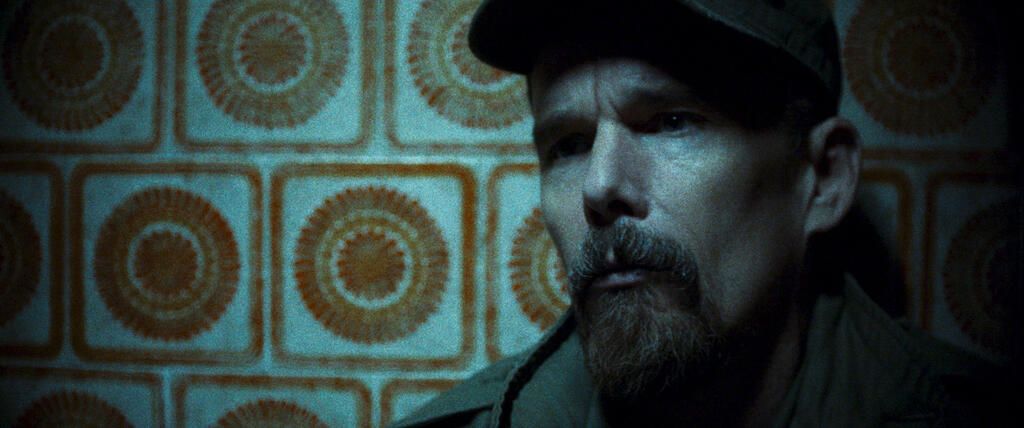Zeros and Ones

Abel Ferrara has never been one to shy away from abstraction, nor an examination of the current moment, and his latest experiment, Zeros and Ones, is perhaps the most critical of his works in this vein; a unification of splintered images, sharp enough to tear into the veritable spider’s web of post-pandemic society. Following Ethan Hawke as a rogue soldier implicated in a terrorist plot, the shaky, hazy eye of the camera (guided by Sean Price Williams) drifts between empty, almost haunted streets and a series of abstract conceptualizations of a world increasingly distanced from the material and defined by the image. Much like his 1998 cyberpunk magnum opus New Rose Hotel, Zeros and Ones is an almost deceptively simple text, depicting an abandonment of the very spaces we’ve built for ourselves, and inviting us into the paranoia induced by unprecedented societal change — in this case, the COVID-19 pandemic. Ferrara’s exploration of contemporary circumstances situates masks, thermometers and sanitizers as signifiers of separation, acting as gateways between realms in much the same way as agents of espionage in the film. At the same time, this is also a text about the nature of revolutions, albeit on a microscopic scale. It’s remarkably less concerned with romance and connection in a disconnected world than either New Rose Hotel or 4:44 Last Day on Earth, but rather than being a mark on the film, the detachment found here renders Zeros and Ones all the more unsettling. The film is a sharply political meditation on a world that will never be the same, and its constant moulding and abstracting of the cinematic form in order to convey its thesis makes it one of the very best films of the year.
